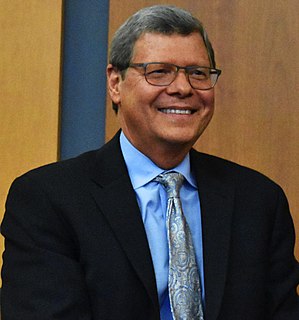A Quote by Judy Woodruff
In my book ["Reclaiming Conversation: The Power of Talk in a Digital Age], I argue that we're vulnerable to technologies.There's a 40 percent decline in all markers for empathy among college students, with most of it taking place in the past years.
Related Quotes
In community after community, there are unemployment rates among young African-Americans of 30 to 40 percent. Thirty to 40 percent! Kids have no jobs, they have no future. That is an issue that has got to be dealt with simultaneously as we deal with police brutality, voter suppression and the other attacks that are taking place on the African-American community.
The obsessive focus on a college degree has served neither taxpayers nor students well. Only 35 percent of students starting a four-year degree program will graduate within four years, and less than 60 percent will graduate within six years. Students who haven't graduated within six years probably never will.
I think bands will actually make more money without record companies; a much bigger share of the money will go to the bands. You won't have record shops taking 40 percent of the money. You won't have record labels taking 40 percent of the money. So they don't have to sell as many albums as they used to in the past. So it's not necessarily a bad thing if record companies disappear.
For the three decades after WWII, incomes grew at about 3 percent a year for people up and down the income ladder, but since then most income growth has occurred among the top quintile. And among that group, most of the income growth has occurred among the top 5 percent. The pattern repeats itself all the way up. Most of the growth among the top 5 percent has been among the top 1 percent, and most of the growth among that group has been among the top one-tenth of one percent.
Our phones do play to our natural nervousness about being vulnerable to each other, but that doesn't mean that we can't we can't pull ourselves together, and say - we need to talk to each because it's in conversation, the most human and humanizing thing that we do, that empathy is born, that intimacy is born, that relationship is born.
We live in the digital age and, unfortunately, it’s degrading our music, not improving it It’s not that digital is bad or inferior, it’s that the way it’s being used isn’t doing justice to the art. The MP3 only has 5 percent of the data present in the original recording. … The convenience of the digital age has forced people to choose between quality and convenience, but they shouldn’t have to make that choice.
Despite the evidence that we already have too many students in higher education, the hot new idea among the political class is to double down by pushing for 'free college tuition.' The problem with the 'free college' idea is, however, not merely financial. It also reinforces the myth that college is appropriate or even possible for all students.































